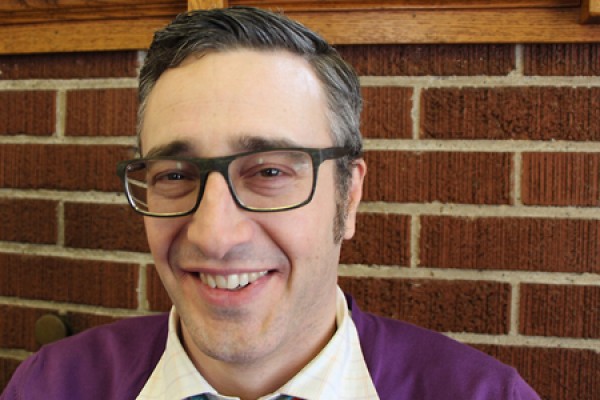 Antonio Pascual-Leone, director of the Psychological Services and Research Centre.
Antonio Pascual-Leone, director of the Psychological Services and Research Centre.
You may pass the House on Sunset on your route to and from campus, and never know about the intensive training of future therapists that’s taking place there.
“We’re quite a good training centre,” says director Antonio Pascual-Leone. “Our main mandate is to train clinicians, or future psychologists, and we are actually one of the best in North America.”
The Psychological Services and Research Centre is also known as “the House on Sunset.” In any given year, it trains between 50 and 60 students to become professional psychologists, offering them hands-on clinical training required for accreditation by the Canadian and American Psychological Associations.
Future psychologists trained in the University of Windsor program eventually go on to compete with other graduates from across North America when they write a professional licencing exam—and UWindsor students rank in the 91st percentile.
“Our graduates are awesome because on that list are all the psychology training programs in Canada and the US, including all of the Ivy League schools and other large universities, and still, we rank right up there at the top of that list” says Dr. Pascual-Leone.
The clinic’s first mandate is to provide the best training, but it also provides a significant health service to communities both on and off campus. Any crisis management situations on campus are referred to the Student Counselling Centre. But at the House, student trainees provide psychological assessments and counselling. About a third of their patients are UWindsor students but the bulk of clients are adults and children from the community.
Pascual-Leone says it is fundamental to provide free longer term therapy to university-aged people because mental health issues can become critical at that age.
“In the landscape of mental health, the difference between the ages of 19 and 25 is dramatic,” he says. “In that window, many things that have been problems either become big-time problems or they sort themselves out.”
He says the first time someone has a psychotic break will likely be between the ages of 19 and 25. Eating disorders and anxiety disorders also surface and often peak during that vulnerable age.
The clinic also has some programs for under-served members of the community. There’s a group therapy session for people who suffer from obsessive compulsive disorder and counselling provided to refugees hailing from war torn countries, as well as treatment for victims of human trafficking.
“I would like to eventually open up and offer even more treatment to the public,” says Pascual-Leone. “I think that it’s an interesting training opportunity but there is also a real need here in Windsor. People who need the services are often the least likely to be able to afford it.”
The Psychological Services and Research Centre records an annual operating surplus of $50,000. But with most services offered for free or at a reduced rate, the value of health care offered each year through the department of psychology as a whole is estimated at more than $5 million per year.
For more information on the House on Sunset, tune into CJAM radio’s Research Matters today on 99.1FM at 4:30 p.m. Pascual-Leone will chat with host Sara Elliott.
